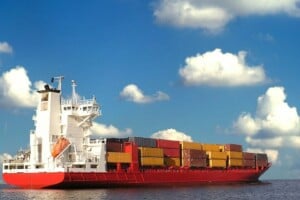The import and export sector in Ecuador is coming back to life. After some controversial measures applied by the former government to increase taxes with surcharges on imports to specific items up to 45%, the new government has eliminated those surcharges bringing the sector to normality and dynamizing it. The Ecuadorian government understands and embraces the need to attract foreign investment and the import/export sector might be crucial to the purpose of growing the economy, closing the fiscal breach, and securing sustainable growth.
The vast natural resources and the rapidly growing Ecuadorian industry make this country a great place to invest and engage in importing and exporting goods. The US Dollar used as a national currency in Ecuador makes importers more competitive while giving the investors security in their businesses.

Table of Contents
International Trade – Legal Process to Import/Export in Ecuador
Before starting your import or export company in Ecuador, it is advisable to have studied and understood your market, opportunities, and conditions in Ecuador. Navigating the culture and bureaucracy in Ecuador is not necessarily easy, and the import and export processes are complex.
Who can import and export products from Ecuador?
All natural or legal persons, Ecuadorians or foreigners residing in the country who have been registered as an importer in the ECUAPASS system and approved by the National Customs Service of Ecuador, can import.
What are the requisites to import/export from Ecuador?
To export or import products in Ecuador, you will first need to register in the ECUAPASS system. Once you have obtained the tax identification number, allowing your company to export or import, you will need to get the Certificate of Digital Signature and then sign in to the ECUAPASS system to obtain your username and password.
You can find some additional requisites for establishing an export company in Ecuador.
Required documentation
Customs Declaration (Declaración Aduanera ‘DAI’): It is the document in which the importer or exporter declares to the authorities what the merchandise is and/or includes. It can be presented electronically or physically and it must include at least, the identification of the Declarant, the means of transport, the description of the merchandise, origin, provenance and the value thereof.
In the case of imports, the Customs Declaration may be presented physically or electronically in a period not exceeding fifteen calendar days prior to the arrival of the means of transport, and up to thirty calendar days following the date of arrival.
For entry to the primary zone, all merchandise to be exported must have its export customs declaration.
Accompanying documents: These documents that are called prior control, must be processed and approved before the shipment of the imported merchandise. This depends on the type of product and process.
Support documents: They will form the basis of the information of the DAI to any regime. These original documents, either physical or electronic, must be kept in the file of the declarant or their Customs Agent at the time of the presentation or transmission of the Customs Declaration, and will be under their responsibility as determined by the Law. The support documents include:
- Document of Transportation: the instrument that proves the ownership of the goods.
- Commercial Invoice: the support that accredits the commercial transaction value for the import or export of the goods. It must be an original document, issued by the seller of the imported or exported goods, and contain the information provided in the regulations relevant and the data may be checked by the customs administration.
- Certificate of Origin: The document that supports the origin of the goods. It is the document that allows the release of taxes to foreign trade in appropriate cases, under international conventions or treaties.
- Other Documents: The customs authorities may ask for additional documents depending on the type of good, origin or any other consideration.

What taxes apply when importing to Ecuador?
Ecuador does not charge any tributes or taxes to export goods. On the other hand, imported products can be charged with up to 4 taxes depending on the product.
To determine the tax value to be paid on foreign trade, it is necessary to know the tariff classification of the imported product. Foreign trade taxes are customs duties, taxes established in organic and ordinary laws and fees for customs services.
AD-VALOREM: Consistent in percentages according to the type of merchandise and applied on the sum of the cost, insurance and freight (tax base of the import).
FODINFA (Development Fund for Children): 0.5% is applied to the tax base of the import.
ICE (Special Consumption Tax): Percentage variable according to the goods and services that are imported.
VAT: 12% applied over tax base + FODINFA + ICE
Need further information?
Ecuador has decided to open their doors to the world and as such has issued a new law to attract foreign investment that includes very interesting benefits for international commerce i.e. income tax exempt for up to 12 years. The time could not be better to invest in Ecuador.
If you are interested in establishing an import/export company in Ecuador, please contact us today. We will be happy to support your Ecuadorian business venture.
Need specialized Latin America legal and immigration advice? Let us support you.
The information provided here within should not be construed as formal guidance or advice. Please consult a professional for your specific situation. Information provided is for informative purposes only and may not capture all pertinent laws, standards, and best practices. The regulatory landscape is continually evolving; information mentioned may be outdated and/or could undergo changes. The interpretations presented are not official. Some sections are based on the interpretations or views of relevant authorities, but we cannot ensure that these perspectives will be supported in all professional settings.
